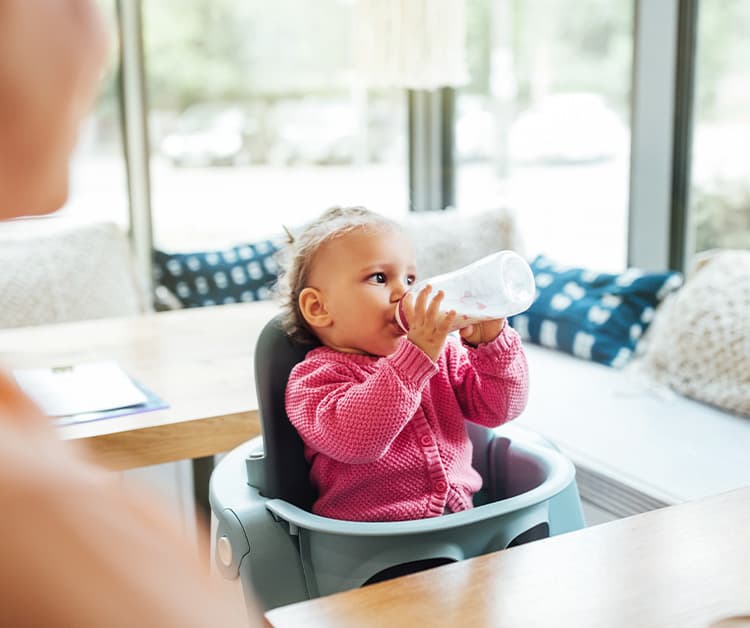
Explore four common questions about dehydration in babies and toddlers.
Medically reviewed by a board-certified pediatrician
Maintaining normal hydration is important. Especially if your little one is sick or spends a lot of time outdoors. We’ll weigh in on how to tell if a child is dehydrated so you can keep your little one adequately hydrated.
It’s important to know how to recognize the indications of dehydration. Untreated dehydration can progress quickly in infants and young children. Look for these indications of dehydration in babies and toddlers:
If you see any of these indications, contact your pediatrician and give your child small drinks of breast milk or formula over a period of time. Toddlers and older children should sip water. Too much liquid at once might make them to throw up—resulting in more fluid loss. Call your child’s doctor.
Liquids designed to quickly replace electrolytes are another good option. Your child’s doctor can also help outline at-home options.
Keep in mind, dehydration can become severe quickly. Especially in babies and toddlers. Their little bodies lack the ability to store fluids like older kids. So, watch out for these indications of severe dehydration, and seek medical attention if your little one shows any of these indicators:
Call your pediatrician immediately if you notice dehydration in your baby. Especially if you suspect it might be severe dehydration.
All this worry over dehydration can be scary. But now that you know how to tell if a child is dehydrated, it should help you understand what to look for. If you suspect your little one might not be getting the hydration they need, be sure to talk to your baby’s doctor.
Toda la información de Enfamil, incluyendo, pero no limitada a la información sobre la salud, condiciones médicas y nutrición, está destinada a tu conocimiento en general y no substituye la identificación del cuidado médico de un profesional de la salud, consejos o el manejo para condiciones médicas específicas. Debes buscar atención médica y consultar a tu médico o pediatra por cualquier problema específico de salud o nutrición. Nunca ignores el consejo médico profesional ni retrases la búsqueda de tratamiento, atención o ayuda médica debido a la información que hayas leído en Enfamil